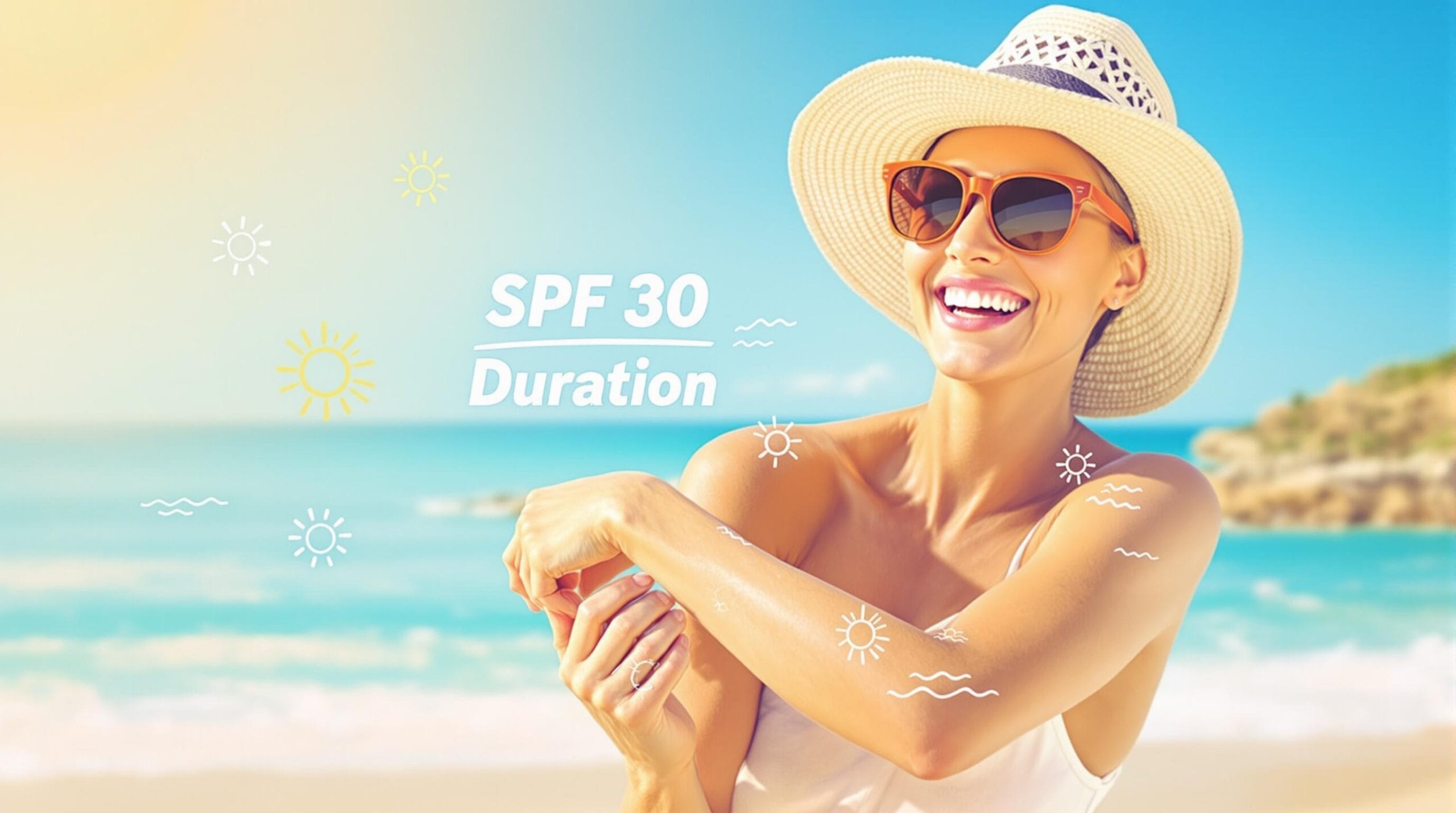
Understanding sunscreens is key to effective skin protection from harmful UV rays. SPF, which stands for Sun Protection Factor, measures how well sunscreens shield the skin from sunburn caused by UVB rays. SPF 30 is particularly popular among users as it blocks about 97% of UVB radiation. This level of protection is suitable for most outdoor activities while providing reasonable coverage in various sun exposure scenarios.
Using SPF 30 sunscreens is crucial for maintaining healthy skin. However, many people remain uncertain about how long this protection actually lasts when exposed to different environments and activities. In this article, we will delve into the longevity of SPF 30 and essential tips for maximizing its effectiveness to keep your skin safe under the sun.
The Science Behind SPF: What You Need to Know
Understanding SPF: A Deeper Dive
SPF is a measurement of how long a sunscreen will protect your skin from harmful UV radiation when applied correctly. For example, if your skin typically begins to burn after 10 minutes of sun exposure without sunscreen, applying SPF 30 can extend that time to approximately 300 minutes under ideal conditions. However, it is essential to note that this duration can vary based on several factors.
How Long Does SPF 30 Protect You?
In theory, SPF 30 provides protection for about 300 minutes. But this is only true if the sunscreen is applied generously and evenly to dry skin. Factors such as sweating, swimming, and even towel drying can diminish this effectiveness. Thus, users should remain vigilant and not rely solely on SPF ratings when enjoying outdoor activities.
Factors Influencing SPF Longevity
Sweat It Out: The Role of Physical Activity
Physical activity can significantly affect the longevity of SPF protection. As you sweat, some of the sunscreen may wash away or wear off, reducing its effectiveness. Frequent reapplication is necessary for those engaged in vigorous activities or when spending time outdoors.
Water, Water, Everywhere: Waterproof vs. Water-Resistant
Many sunscreens claim to be waterproof or water-resistant. It’s important to understand that no sunscreen is entirely waterproof. Water-resistant sunscreens retain their SPF protection for a limited time when exposed to water or sweat, typically for 40 to 80 minutes. Users should reapply after swimming or sweating to maintain ongoing protection.
Breakdowns: How UV Rays Lower Your Protection
UV rays can break down sunscreens over time, diminishing their protective qualities. Additionally, prolonged time spent in direct sunlight can further reduce sunscreen effectiveness. Hence, users should monitor sun exposure and reapply SPF 30 at recommended intervals.
Real Talk: How Often Should You Reapply?
General Guidelines for Reapplication
It’s crucial to reapply SPF 30 sunscreen every two hours. If you participate in activities that cause sweating or you go swimming, you should reapply as soon as you are done. Following these guidelines ensures you maintain adequate protection against UV rays.
Signs It’s Time to Reapply
Look for physical signs that indicate it’s time to reapply sunscreen. If your skin feels dry or has been exposed to water, it’s a good idea to refresh your application. Additionally, if you notice redness beginning to appear on your skin, it’s a clear signal that your sunscreen may no longer be effective.
Dos and Don’ts of Using SPF 30 Sunscreens
The Must-Do’s to Maximize SPF Effectiveness
- Apply on dry skin at least 15 minutes before sun exposure.
- Use enough product—about an ounce for full body coverage.
- Make sure to cover all exposed areas, including ears and the scalp.
The No-No’s That Could Ruin Your Protection
- Avoid using expired sunscreens, as they lose potency.
- Don’t rely solely on SPF for sun protection; also wear protective clothing.
- Do not skip areas such as the back of your knees and the tops of your feet.
Conclusion: Your SPF 30 Strategy for Ultimate Protection
In summary, SPF 30 is effective at blocking 97% of UV rays for up to 300 minutes under optimal conditions. However, several factors like sweat, water exposure, and environmental conditions can impact its longevity. For ultimate skin protection, make sunscreen application a regular part of your routine and remember to reapply it often!
FAQs: SPF 30 Unraveled
Can I use SPF 30 on sensitive skin?
Yes, many SPF 30 sunscreens are formulated with gentle ingredients suitable for sensitive skin. Look for products labeled “hypoallergenic” or “fragrance-free.”
Is SPF 30 enough for daily wear?
SPF 30 is generally adequate for daily wear, especially if you spend limited time outdoors. For prolonged exposure, consider using a higher SPF and reapplying it regularly.
What happens if I don’t reapply?
If sunscreen isn’t reapplied as needed, its effectiveness decreases. This can lead to sunburns and long-term skin damage, highlighting the importance of consistent application.
For more information on sunscreens, visit sunscreen resources, and ensure that you and your family enjoy safe sun practices!
Is Your Sunscreen Expired? Discover the Shocking Truth That Could Save Your Skin! >>>







